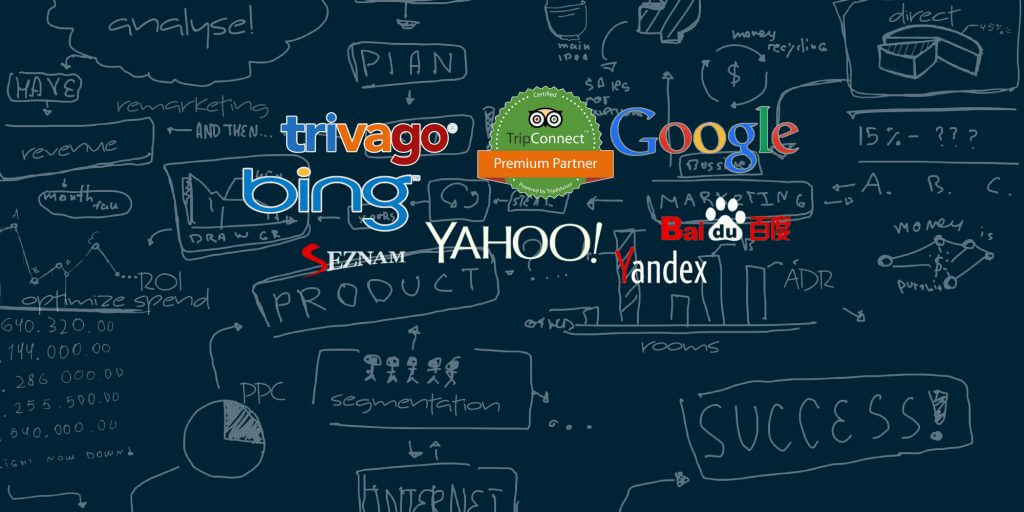
The success of a hotel, in large part, relies on the success of its advertising. While the guest experience will remain the ultimate differentiator across properties, capturing the attention of prospective new guests, maximizing ad spend, and driving direct bookings remains paramount.
NB: This is an article from D-Edge
After all, an exceptional guest experience can only be provided after the guest has decided to step foot on the property.
With this in mind, metasearch engines have emerged as a critical distribution platform over the last few years, enabling hotels to drive cost-effective bookings, while reducing reliance on OTAs. In an effort to further examine the power of metasearch and better understand the state of hotel advertising, D-EDGE conducted a new study to help hotels plan and allocate their marketing budgets in the coming weeks and months.
The report works to not only analyze canonical metasearch platforms but also to highlight the advertising channels that, directly or indirectly, contribute to hotels’ direct revenue. The findings are representative of a fixed pool of 954 properties worldwide and revealed some significant insights, including a +300% increase in bookings linked to digital advertising since 2012.
Display Advertising Yields Reliable Results
It’s no secret that online display advertising can help to drive relevant traffic to a hotel’s website. From the guest point of view, compelling visual inspiration can play a pivotal role in their decision to book and typically yields higher consumer engagement. These ads are also unique in that they aren’t shown directly in search engine results, therefore increasing property visibility without any risk of ‘traffic cannibalization’. With the ability to target and re-target consumers and specific demographics across multiple sites, hoteliers can effectively bring their hotel to life across channels and increase website traffic while inspiring booking decisions.
According to the report, the positive trend of display advertising shows no sign of slowing down; in 2019 alone, display advertising across multiple platforms generated as many bookings as Google Hotel Ads and Tripadvisor combined. Moreover, in the case of D-EDGE clients, they were able to achieve 9x ROI (or more) across channels, making it an incredibly safe and reliable advertising investment.
Metasearch is Still the Winning Formula, Especially Google Hotel Ads
Since 2013, metasearch has established its position as one of the most reliable advertising channels for hoteliers, and a preferred online booking method for prospective guests. It would seem that, despite industry changes led by changing guest behavior, the same remains to be true today — metasearch is still the winning formula. These channels include Google Hotel Ads, Trivago, Tripadvisor, HotelsCombined, and Kayak.

In 2017, Google Hotel Ads demonstrated favorable ROI in terms of both ad spend and click volume, and, by 2019, this channel drove the highest volume of traffic to hotel websites. Currently, Google Hotel Ads boasts an impressive return of 10.5X, which can likely be attributed to the launch of google.com/travel in 2019, the implementation of Book on Google, and the recent Pay Per Stay (PPS) and Property Promotion Ads (PPA) features.
Trivago, on the other hand, has become an appealing low-risk advertising platform. The channel experienced a 17% increase in traffic from 2012 to 2019, and a positive return on advertising spend (ROAS) with the number of bookings increasing by 248% over the same time. Hoteliers should note that, as a general rule, partners providing the cheapest rates on Trivago would hold a higher position in paid search, regardless of the bid offered.
In the case of Tripadvisor, the report indicated stable returns despite decreased volume, and a higher cost-per-click investment. In 2012, the platform boasted a ROAS of 10X, which fell slightly to 9.5X in 2019. However, last year the Tripadvisor platform generated 52% fewer clicks than in 2012, likely due to increased competition in the metasearch space, including Google, and continued changes to the Tripadvisor business model. Despite the recent drop in traffic volume, Tripadvisor metasearch ads remain very qualitative with a very engaged and relevant audience.
Finally, HotelsCombined and Kayak generate a fraction of the volume of Tripadvisor and Trivago; however, they’ve proved to be a compelling option for hotels in Asia and North America that cater to a niche market. From an ROI perspective, HotelsCombined offered hoteliers 6.8X at the end of 2019, with Kayak coming in at 7.8X.
Search Advertising, Is It Still Relevant?
Understandably, with so much emphasis on metasearch advertisements, classic search engine advertisement appears to be on the decline across the hospitality space. The report revealed that the ROI of brand-protection campaigns across general search engines (Google and Bing) decreased from 16X to 12.4X, while the average CPC increased by 10 cents. Google also changed its brand-protection policy on its text adverts on Google Ads, back in 2018.
When considering ROAS from a cost-per-acquisition (CPA) perspective, it’s important to remember that the CPA for direct revenue, generally speaking, should not be higher than the average commission paid to OTAs. After all, much of the appeal of metasearch advertising is that it provides hoteliers with a competitive advantage to shift away from OTA reliance, which is often costly. The report helped to provide some perspective here, revealing that campaigns with the lowest cost per acquisition are the ones on the whole Google ecosystem, with search having the lowest (8%), followed by Google Hotel Ads (10%) and Display (10%). Tripadvisor and Trivago, on the other hand, have 11% and 12% CPA. However, fluctuations are common, and it remains important for hotels to utilize a marketing mix with optimized campaigns across more than one channel.
Conclusion:
By focusing on optimized ad spend across metasearch channels, hotels can effectively expand their reach to a broader demographic and drive direct bookings and make the most of their advertising budget.



